Did you know that nearly 1 in 4 adults worldwide struggles with joint or bone-related issues such as arthritis, gout, or chronic swelling? For centuries, people have turned to plants for relief, and one surprising star in traditional remedies is the humble guava leaf. Beyond its reputation for aiding digestion, guava leaves have long been used in many cultures to support joint health, reduce water retention, and soothe discomfort from swollen legs.
Imagine being able to find potential relief not in a pharmacy, but in your backyard garden or local herbal shop. This article explores how guava leaves are believed to benefit bone and joint conditions, why they are gaining attention for issues like gout and fluid retention, and how people traditionally prepare them. Whether you are curious about natural remedies or looking for ways to complement your wellness journey, you’ll discover practical, research-backed insights here.
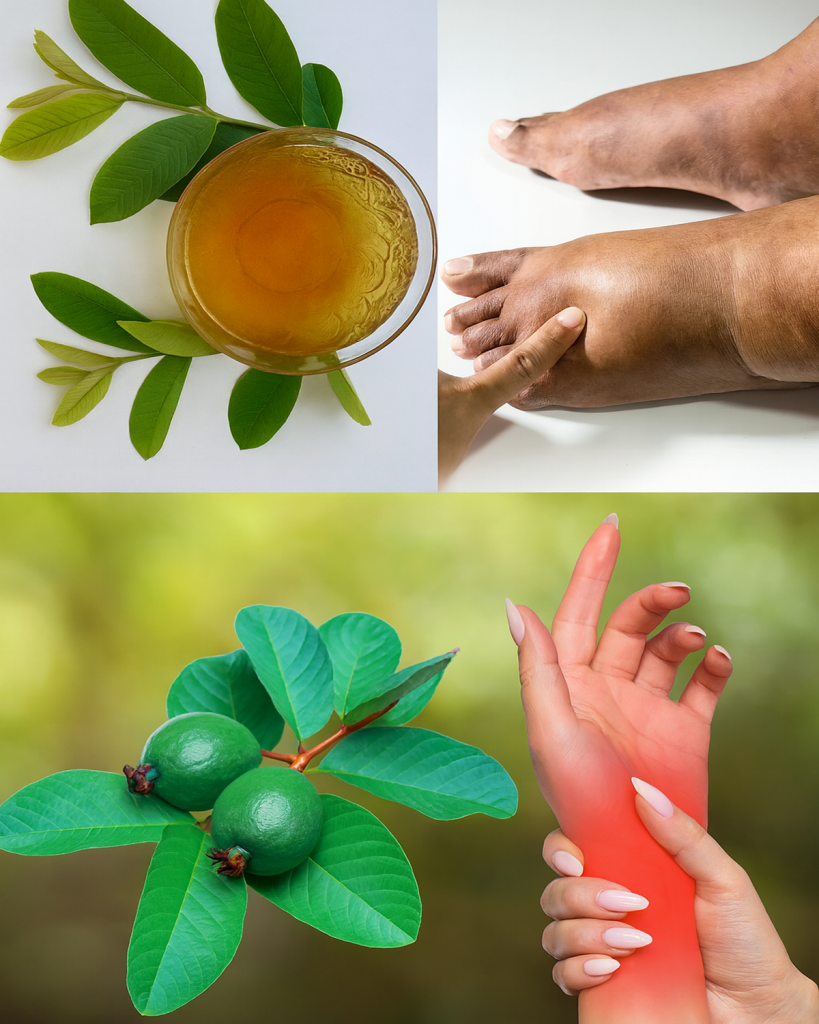
What Makes Guava Leaves Special?
Guava leaves contain a variety of compounds that may contribute to their potential health-supporting effects. Some of the most studied include:
- Flavonoids (like quercetin): Known for antioxidant and anti-inflammatory properties.
- Tannins: Traditionally valued for reducing swelling and calming irritation.
- Vitamin C and carotenoids: Nutrients that support immune and tissue health.
- Polyphenols: Thought to aid circulation and help balance fluid retention.
Together, these compounds make guava leaves an intriguing natural option for people dealing with pain, stiffness, or swelling. While modern medicine continues to study their effectiveness, traditional wisdom already points to interesting uses.
Guava Leaves and Joint Health
Supporting Bones and Joints Naturally
Many people experience joint stiffness due to conditions like arthritis or daily wear and tear. Traditional herbal practices often recommend guava leaves because they are believed to:
- Ease joint discomfort through anti-inflammatory effects.
- Support blood flow, which may help reduce stiffness.
- Provide antioxidants that protect tissues from damage.
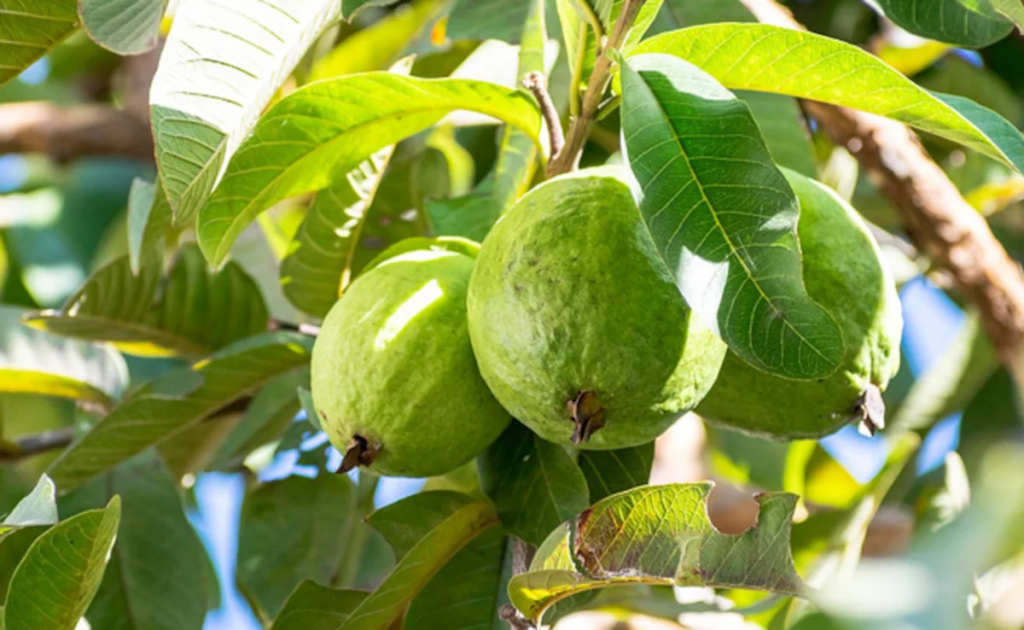
In everyday practice, some individuals brew guava leaves into teas and consume them regularly to maintain flexibility. Others prepare compresses with boiled leaves and apply them to sore joints.
Case Example
A retiree from Southeast Asia shared how drinking guava leaf tea twice a week helped ease her morning stiffness. While she still consults her doctor for her arthritis, she described guava tea as her “comfort ritual” that made her daily walks more enjoyable.
Guava Leaves for Gout Relief
Why Gout Sufferers Pay Attention
Gout is a type of arthritis caused by high uric acid levels, leading to painful swelling, often in the big toe or ankle. While guava leaves are not a cure, some traditional approaches suggest they may help:
- Flavonoids in the leaves are thought to reduce inflammation.
- The tea is believed to support uric acid management.
- Compresses made from guava leaves are used to soothe swollen joints.
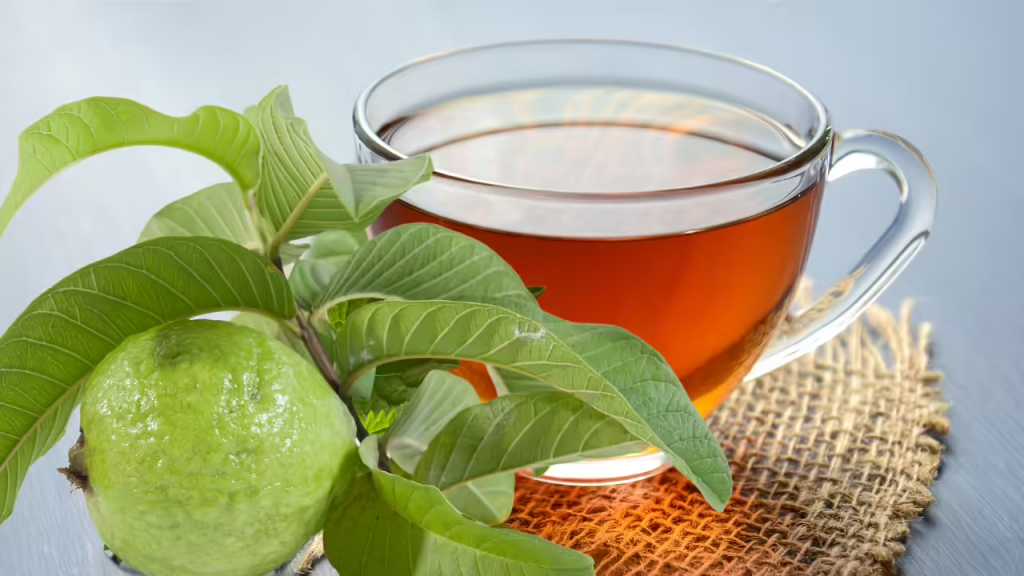
How People Use It
- Tea Method: Boil a handful of fresh guava leaves in 3 cups of water, simmer for 10 minutes, strain, and drink warm.
- Topical Compress: Crushed boiled leaves wrapped in a clean cloth and placed over swollen areas.
Practical Note
Individuals often combine guava leaf use with a diet low in purine-rich foods (like red meat and alcohol) for better gout management.
Swollen Legs and Water Retention
Understanding the Issue
Swollen legs and fluid retention can be caused by many factors—long hours of standing, high salt intake, or underlying medical conditions. While medical evaluation is always essential, guava leaves have been used as a gentle, traditional support.
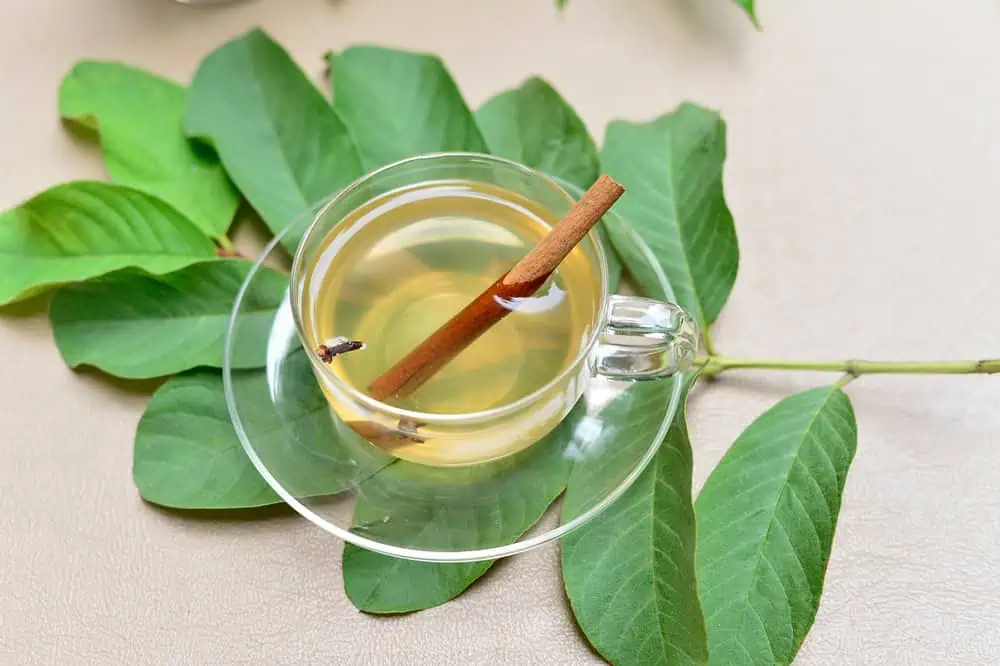
Potential Benefits
- May act as a natural diuretic to help the body release excess fluid.
- Thought to improve circulation, easing discomfort in heavy legs.
- Provides calming compounds that soothe tired muscles.
Everyday Applications
- Drinking guava leaf tea in moderation.
- Soaking legs in warm water boiled with guava leaves.
- Adding guava leaf extracts to baths for relaxation.
Example Table of Use
| Condition | Common Use of Guava Leaves |
|---|---|
| Joint stiffness | Tea or compress |
| Gout flare-ups | Tea + diet adjustments |
| Swollen legs | Warm leaf soak |
| Water retention | Tea in moderation |
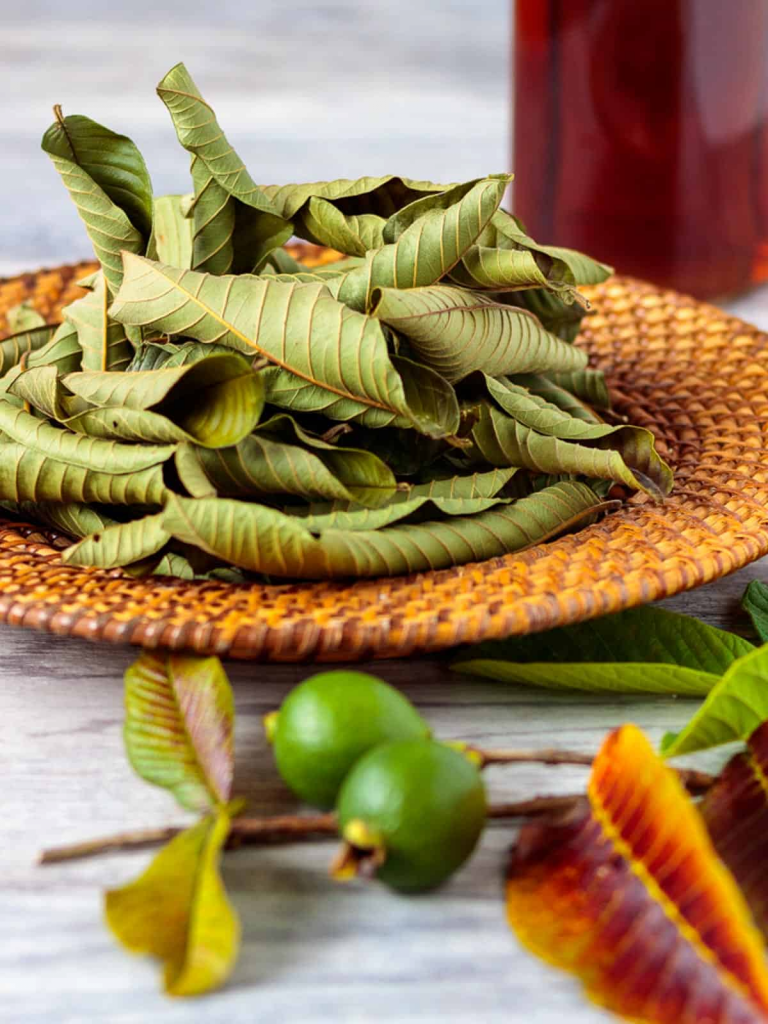
Scientific Insights and Limitations
Recent studies suggest guava leaf extracts have anti-inflammatory and antioxidant activities, but research on bone and joint health is still limited. Most findings come from small-scale studies or traditional medicine reports.
What this means for you:
- Guava leaves may support comfort and circulation, but they are not replacements for prescribed treatments.
- Consistency matters. Traditional users often consume guava tea regularly, but always in safe, moderate amounts.
- Quality of preparation makes a difference—fresh, properly cleaned leaves are preferred.
Practical Tips for Using Guava Leaves
- Start small: Begin with one cup of tea a few times a week.
- Listen to your body: Stop if you notice unusual reactions.
- Combine with lifestyle: Balanced diet, hydration, and regular movement enhance results.
- Consult professionals: Always check with your healthcare provider, especially if you take medications for gout, blood pressure, or kidney conditions.
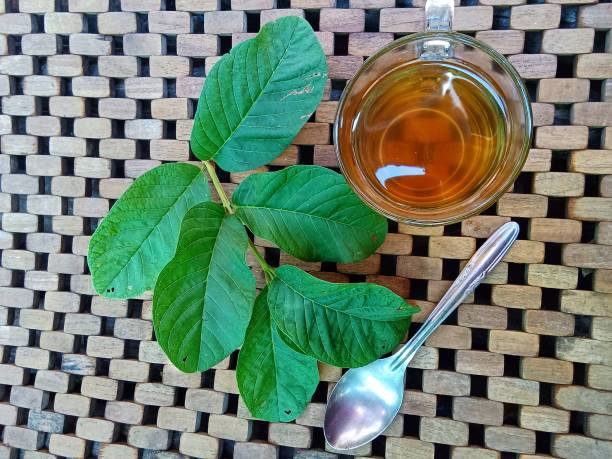
Conclusion
Guava leaves have captured attention as a natural companion for bone and joint diseases, gout, swollen legs, and water retention. While scientific research is still developing, traditional practices and early studies suggest they may offer gentle support through their antioxidant, anti-inflammatory, and circulation-boosting properties.
Frequently Asked Questions
Can guava leaves cure gout or arthritis?
No. They may support comfort but do not replace medical treatment.
How often should I drink guava leaf tea?
Many traditional users drink it a few times per week, but moderation is important.
Are there side effects?
Most people tolerate guava leaf tea well, but those with medical conditions should consult a doctor.
Final Note: This article is for informational purposes only and does not substitute professional medical advice. Always consult a healthcare provider before starting any new herbal remedy.




